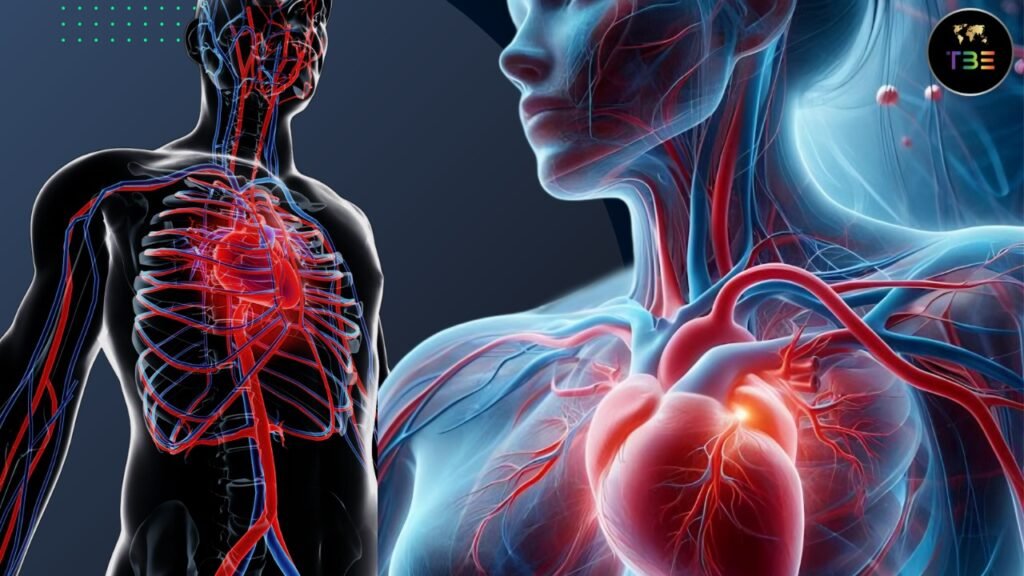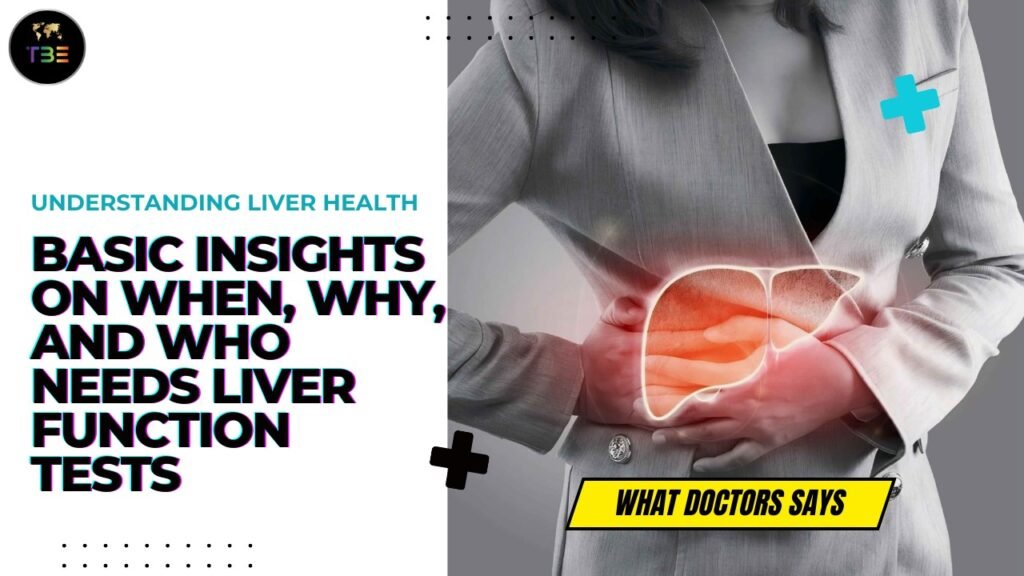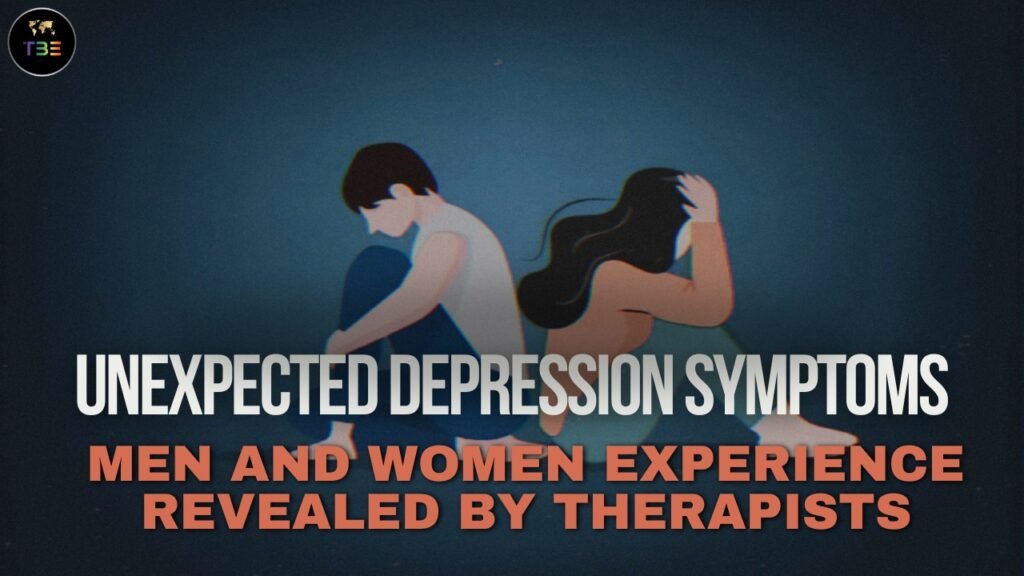
You may picture a middle-aged man grabbing his chest, sweating and struggling for air when you think of a heart attack. But this is the “Bollywood drama” portrayal of heart issues. In actuality, cardiac problems frequently manifest in far more quiet, understated ways. Recognizing these unusual symptoms and their possible consequences is crucial for protecting your health.
Understanding the Complex Signals of the Heart
The complex organ that circulates blood throughout your body is the heart. The effects of it not operating at its best can spread to all systems. Heart disorders can present in a variety of ways, so it’s important to recognize symptoms that may not appear connected but could indicate major difficulties. The fuel that powers the rest of the body cannot reach its destination if the heart isn’t functioning properly.
Here’s a closer look at some unexpected and frequently ignored symptoms that could point to a cardiac issue.
1. A Decent Sensation in Your Chest
There are several methods for defining palpitations in the heart. Occasionally, patients describe the experience as sinking, like quickly falling in stairs, or as a goldfish flipping in their chest. Even though they don’t seem harmful, these feelings could point to a cardiac rhythm issue like atrial fibrillation (Afib).
It’s important to be aware of these symptoms and talk to a physician about them. It could be advised to have an EKG and a cardiac monitor to rule out any underlying arrhythmia. Keeping a journal of the times and situations that may cause these palpitations might give your doctor important information.
2. Continuous Whooshing Sounds in the Ear
Whooshing or pounding sounds that are persistent in one or both ears and associated with pulsatile tinnitus may be more than just an annoyance. This symptom may be related to either carotid artery stenosis, which is a narrowing of the arteries supplying blood to the brain, or fibromuscular dysplasia, a rare vascular condition.
You should definitely see a doctor if you experience sudden, continuous pulsations in your ears. Even though it’s frequently ignored, this symptom may indicate underlying vascular problems that need to be treated.
3. Leg Pain or Fatigue During Walking
Leg pain or exhaustion from walking may be signs of more than just aging or inadequate fitness. This could indicate peripheral artery disease (PAD), a disorder where clogged arteries deliver blood to the lower limbs. PAD is associated with an elevated risk of stroke and heart attack.
It’s important to visit a doctor if you experience ongoing fatigue or leg pain. Ankle brachial index testing can help measure blood flow and detect the existence of peripheral artery disease, also known as PAD, or other cardiovascular conditions.
4. Changes in Color and Swelling in the Legs and Feet
Peripheral edema, or swelling in the legs, ankles, and feet, is a common indicator of congestive heart failure. Fluid buildup in the lower extremities can occur when the heart is unable to pump blood efficiently.
Seek medical attention if you develop bilateral swelling that doesn’t go away or gets worse. Abrupt color changes, such as becoming pale or purple, might be signs of blood clots, which are medical emergencies that can cause serious side effects like strokes or heart attacks.
5. Neck or Jaw Pain from exertion
Sometimes, especially after physical activity or emotional stress, angina, or pressure in the chest, can spread to the jaw or neck. One should not disregard this kind of pain, which is frequently alleviated by rest. It might indicate coronary artery disease or other heart-related disorders.
It’s recommended to see a physician for a stress test and imaging investigations to determine your risk of heart disease if you have jaw or neck pain when engaging in physical activity.
6. Indigestion and strange feeling
Nausea or indigestion associated with the heart can frequently be mistaken as ordinary gastrointestinal issues. Chest pain that feels like heartburn or indigestion could be a sign of a condition called ischemic heart disease. It’s critical to take nausea seriously, especially if it’s accompanied by other symptoms like jaw or back pain.
These are signs that both men and women should closely monitor. Women are more likely to have unusual symptoms like vomiting, which could be a sign of a heart attack.
7. Breathlessness Combined with Symptoms of Carpal Tunnel Syndrome
Shortness of breath combined with carpal tunnel symptoms, such as tingling in the fingers, wrist pain, or hand weakness, may indicate a problem other than repetitive strain injuries. The combination of these symptoms may point to cardiac amyloidosis, a disorder in which abnormal proteins accumulate in the heart and neurons among other bodily parts.
Seek medical attention if all of these symptoms appear at once. Because of the substantial improvements in treatment results for this disorder, early diagnosis is essential.
8. Unexpected Stripping Chest Pain
An sudden, acute pain in the chest that travels to the back is the typical presentation of aortic dissection, as opposed to typical chest discomfort, which frequently feels like pressure or squeezing. This illness is potentially fatal and has to be treated right away. Since untreated aortic dissection can have a high death rate, prompt discovery and treatment are crucial.
Seek immediate medical attention and treat any sudden, severe chest pain as an emergency.
9. Inexplicable Tiredness or Difficulty Performing Routine Activities
The condition known as valve disease affects the heart’s valves and often progresses gradually over time. Symptoms could go ignored until they become noticeable. Reports of excessive fatigue or difficulty performing routine tasks like cleaning the house or climbing stairs may indicate valvular problems.
Don’t discount these adjustments in your capacity to carry out daily duties. Results of valvular disease can be considerably improved by early detection and treatment.
10. Changes in Breathing Patterns
Sometimes, cardiac problems such as heart failure or valvular disease are linked to shortness of breath. It is crucial to speak with a healthcare professional if you discover that previously manageable activities are making you more easily exhausted or that you are having trouble breathing.
This symptom may point to a variety of cardiovascular conditions that require prompt diagnosis and treatment.
Many signs, some of which may appear unrelated to heart function, might accompany heart disease. Early detection and treatment of these less evident symptoms may be essential for preventing serious problems and enhancing overall results. Do not hesitate to see your doctor if you experience any of the symptoms mentioned. Early intervention can have a major impact on your general health and heart health. Remember that the best approach to guarantee a longer, healthier life is to remain active and proactive about your health.
ALSO READ: Know how UK government’s planned outside smoking ban is a game changer for public health








